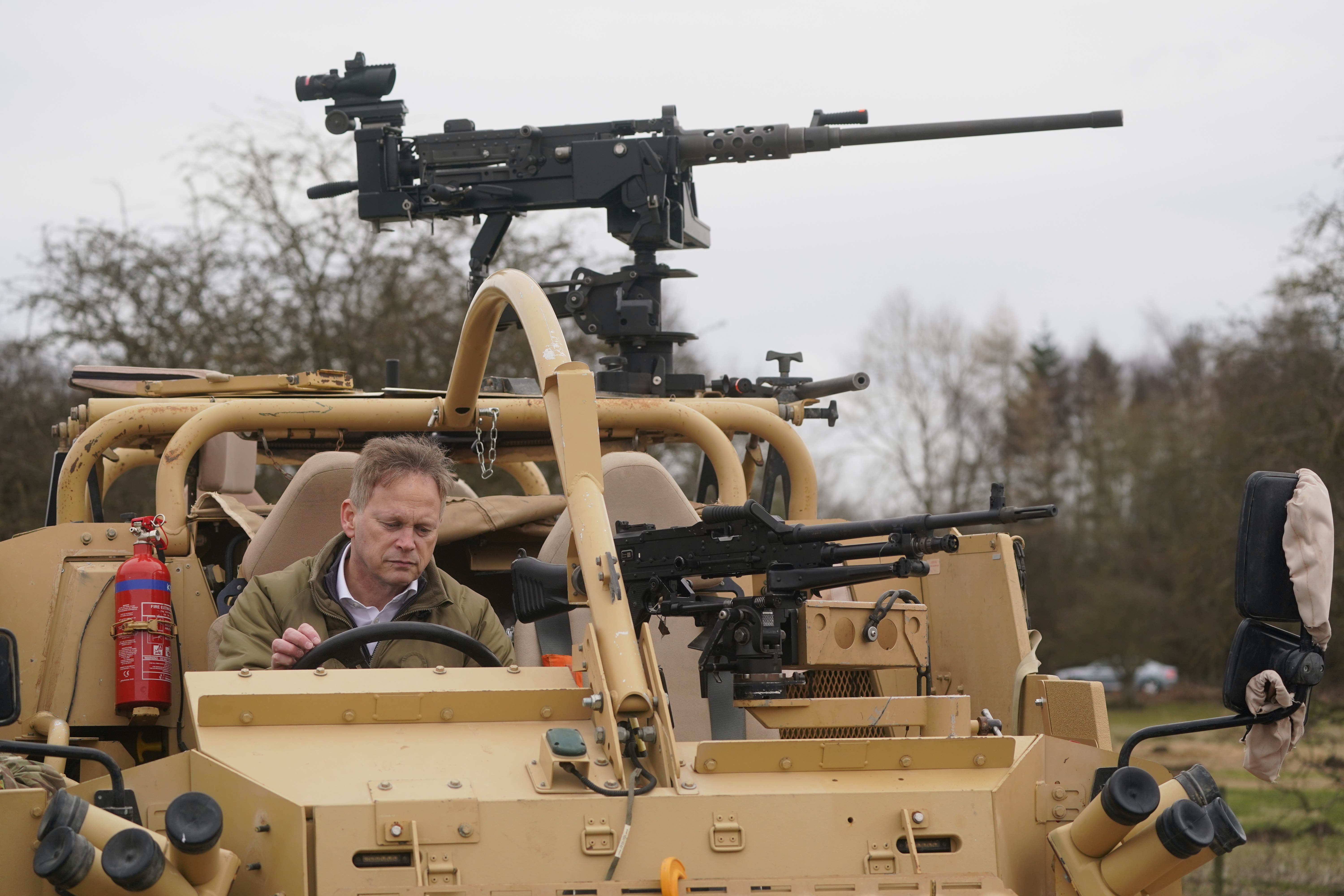Grant Shapps urges Chancellor to raise defence spending to 2.5% of GDP
The Defence Secretary is said to have told Jeremy Hunt that such a move in the Budget would ‘resonate with our allies and adversaries’.

Your support helps us to tell the story
From reproductive rights to climate change to Big Tech, The Independent is on the ground when the story is developing. Whether it's investigating the financials of Elon Musk's pro-Trump PAC or producing our latest documentary, 'The A Word', which shines a light on the American women fighting for reproductive rights, we know how important it is to parse out the facts from the messaging.
At such a critical moment in US history, we need reporters on the ground. Your donation allows us to keep sending journalists to speak to both sides of the story.
The Independent is trusted by Americans across the entire political spectrum. And unlike many other quality news outlets, we choose not to lock Americans out of our reporting and analysis with paywalls. We believe quality journalism should be available to everyone, paid for by those who can afford it.
Your support makes all the difference.Defence Secretary Grant Shapps has urged the Chancellor to increase military spending to 2.5% of GDP at next week’s Budget.
In a letter first reported by the Daily Telegraph and since confirmed by the Ministry of Defence (MoD), Mr Shapps wrote to Jeremy Hunt saying: “I believe we must take bold action in your Budget in March to commit to defence spending increasing to 2.5% in 2024.
“This will resonate with our allies and adversaries. It would re-establish our leadership in Europe.”
The MoD said the extract of the letter, reportedly sent on January 24, was accurate but that it was not sharing the correspondence between the senior Government ministers more widely.
I’m a secretary of state who lobbies hard for the area that I represent and I happen to think that, in this case, the defence of our nation is our number one priority
The Treasury, which said it would not comment on speculation ahead of Wednesday’s fiscal event, pointed to extra defence investment in last year’s Budget in its response.
Prime Minister Rishi Sunak has said he wants to raise defence spending to 2.5% of GDP, a measure of the size of the economy, when economic circumstances allow.
The Telegraph’s report suggested the increase to 2.5% would cost about an extra £9 billion.
As well as being lobbied by his colleagues for extra departmental spending, Mr Hunt is under pressure to deliver tax cuts in what could be the last fiscal statement from the Conservative Government before the next general election, which is widely expected in the autumn.
With the Chancellor number-crunching over the coming days before finalising his Budget, official forecasts of the Chancellor’s “head room” against his plans to get borrowing to fall in five years’ time are understood to have moved against the Government.
Treasury sources this week said Mr Hunt is considering a further squeeze on public spending as a way to deliver the tax cuts being demanded by some Tory MPs.
Mr Shapps, after visiting British and Ukrainian soldiers in North Yorkshire on Thursday, spoke to reporters about Britain’s defence spending and appeared to confirm he had lobbied the Treasury for additional funds.
The Cabinet minister said he could not comment on the likely outcome for defence when the Chancellor delivers his Budget.
But he stressed the UK is committed to moving defence spending to 2.5% of GDP when the economy allows.
He added: “I have personally talked about 3% before I was defence secretary and I think, ultimately, countries will need to spend more.
“As you would expect, I’m a secretary of state who lobbies hard for the area that I represent and I happen to think that, in this case, the defence of our nation is our number one priority.
“The first thing a government has to do is make sure it secures its borders and is able to defend itself.
“I am pretty full throttle in my insistence that that is what we do.”
A Treasury spokesman said: “We have provided the Ministry of Defence the largest sustained spending increase since the end of the Cold War, with a £24 billion uplift in cash terms over the spending review 2020 period.
“At the spring Budget last year we also provided an extra £11 billion over the next five years.
“Our aspiration over the longer term is to invest 2.5% of GDP on defence as soon as the fiscal and economic circumstances allow.”